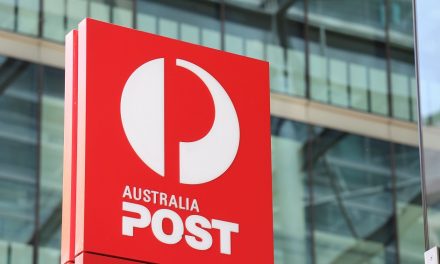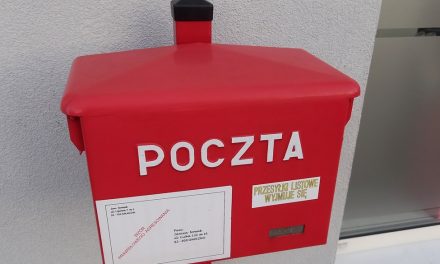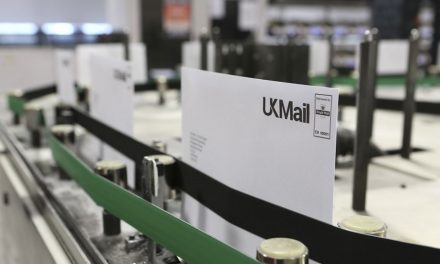
Mail pioneers are getting it sorted
Express companies are lining up to offer broader domestic mail services following full UK postal liberalisation on 1 January.
Previously, competition was limited to bulk mailings of 4,000 items or more. This sector, accounting for about 30% of the mail market by value, was opened up in January 2003.
Now, private operators can go for any business they choose, although rather than investing in capital-intensive sorting equipment, most are competing only for pre-sorted mail from larger customers which they are then moving in sacks through their existing parcel networks to the Royal Mail's 69 inward mailing centres (IMCs).
The majority of mail licensees are not delivering direct to the customer's door. Postal regulator Postcomm has awarded 14 companies long-term licences for UK upstream mail handling, spokesman Chris Webb told IFW. Except for the end-to-end networks such as DX and Speedmail, these operators hand over to Royal Mail for the "last mile".
Webb said the final stage of deregulation had not brought a flood of new applicants. "One or two" more were in the pipeline.
Postcomm chairman Nigel Stapleton said: "Limited competition has already delivered significant benefits, with Royal Mail's quality of service at an all-time high and business customers enjoying more innovative products and later mail collection times. With full competition, all of us will begin to see new choices across the full range of postal services, and licensed operators will be free to offer mail users the services they demand.
"One highly-valued aspect of the UK mail system will remain unchanged by these new developments. That is the universal service provided by Royal Mail: the one-price-goesanywhere stamp, plus collections and deliveries every working day for every UK address."
Launch customer Target Express has completed the first commercial mailing through its new postal service, Target Post, by handling 5,500 pieces for launch customer Lloyd James Direct Mail.
Lloyd James is one of the UK's largest providers of direct marketing services. The initial project with Target was a direct mail project promoting the group's own digital print services.
Stuart King, operations manager at Lloyd James Direct Mail, commented: "Using Target Post offers us a range of benefits; not only does it provide better value for money, but Target's service levels and IT infrastructure hold it ahead of the competition.
"The next step in our relationship is to encourage our customers to use Target Post for their own direct mailing projects." Previous postal systems have required three individual postmarks to specify first, second and third-class priority, Target uses a unique indicia; a pre-printed postmark that allows items to be visually identified as Target Post mail.
The client then simply states the priority of each mailing on collection, which offers increased efficiency and flexibility by reducing the work required to prepare a mailing and the practical problems of changing the priority of the mail.
King said: "It is a basic but very beneficial element to only use one indicia, as it means there is only one type of envelope, and one PPI mark for all grades of post. Sorting is also more efficient through Target Post, as all their mail is sorted within two days, whereas previously it could take up to nine days for lower-priority mail." Target signed an access agreement with Royal Mail at the beginning of December after four months of discussions.
Target director Paul Murray, who led the company's development of mail services ready for the new regime, said:
"We wanted to work in partnership with Royal Mail, but we're doing it differently by offering zonal access.
"Everybody else has signed national access agreements, under which you have to provide a full national mailing at a standard price. Zonal access is different because you can offer different prices to customers whose letters are going to different areas." Based on 10,500 postcode sectors, Royal Mail has established five zones depending on ease – and therefore cost – of delivery. Zone A represents commercial centres, zone B is urban, zone C suburban, zone D rural and zone E deep rural.
Zone A mailings can typically be offered 3-4p cheaper than a zone D or E. "We've got the software so customers can work out their own costings, " Murray said.
"Customers have already found they can make significant savings if they are only paying a charge for zones A and B." Royal Mail was not a loser from the new arrangements, he insisted. "They've got the downstream volumes, and have been incredibly helpful.
"We've worked with them for 10 years through our international mail service and we have their quality accreditation, " said Murray. "We have a good relationship and our strategy is to work with them, not compete.
Target is a parcels business – mail is added value.
"We're not pretending to be a mail business of the future.
What we're good at is network service and customer flexibility.
Mail sacks are moved over our network in our cages using the same vehicles as our parcels.
"As far as we're concerned it's a B2B movement. The Royal Mail then does what it is phenomenally good at: making the final sort and delivering to the door. A lot of people knock it, but I believe it provides a fantastic service at low cost." Following Lloyd James's lead, a second customer signed up with Target Post last week. "And we've been bombarded with enquiries, " said Murray.
Target is currently handling only customer pre-sorted mail.
"We're not going into unsorted yet – we will look at it next year, " said Murray. "We're only in this to make a decent margin.
There are some companies out there claiming a big market share but doing it for nothing." GeoPost UK's MailPlus division went live in November."We've had our PostComm licence since last February, but we spent a number of moths negotiating downtream access, " said general manager Jon Wilkins.
Like Target, MailPlus is handling pre-sorted mail, but again with its own unique twist.
"Accuracy of sortation is the key, and we have software enabling us to sort mail bags through our parcel hub, " said Wilkins.
The process most handlers of pre-sorted mail go through is to pick up the tied mail bag, read the label round its neck and manually put it on the right delivery run.
MailPlus aims to minimise human error by incorporating extra information on the barcode label, so the bag can be tracked through the network and can also be pre-weighed.
There can be inconsistencies in what comes from the mailing house, and Royal Mail is within its rights to reject a whole bag if the declaration is inaccurate.
"We have also negotiated with Royal Mail that, instead of the paper process by which they sign for receipt of mail, they will sign our drivers' pocket PCs, which means the information can go straight on our website, " Wilkins said.
"We're focusing entirely on pre-sorted. We're looking at opportunities to get into small volumes of unsorted mail, but we wanted to see how the market develops first." Most operators dealing with unsorted mail were still going for standardised letters, albeit at levels below 4,000, to avoid the need to machine-sort, he claimed.
The significance of 1 January was not the lowering of the bar but the "noise" around liberalisation.
"People are coming to us and volumes are building steadily, " said Wilkins.
MailPlus is putting sacks of mail through its Parceline system for delivery to IMCs.
"We're providing a two-day service compared with Royal Mail's three days, at a secondclass price or below. And we don't have the same level of constraint around collection times. We can arrange later collection times than Royal Mail as long as we can get to the hub that evening, " he added.
Two-day service UK Mail, the mail arm of Business Post, was first to secure a downstream access agreement under PostComm's previous bulk mail terms and signed up its first customer, Powergen, in May 2004. The company has now built up volumes of 3-4m items a day, according to new MD Steve Patrick.
The company has committed to handling unsorted mail and has invested in four sorting machines so far. Patrick said there were another three to come – at £50,000 (t73,000) apiece, plus local sales resource and additional manual labour – by the end of this financial year in March.
Each sorter enables UK Mail to offer a two-day service within a 80km radius, and a three-day service over greater distances.
There were no constraints on UK Mail despite pressures elsewhere in the group, Patrick said. "Business Post continues to be a successful, profitable company." UK Mail moved into profit in the first half of this financial year on the back of sixfold volume growth.
Echoing MailPlus, Patrick said: "For us there was little or no change on 1 January, other than the increased attention and publicity surrounding mail liberalisation. We won't see any company attempting to mirror Royal Mail's 'social' mail network." He said he found it ironic that TNT and, to a lesser extent, DHL were among Business Post's competitors in the liberalised UK mail market, but that Royal Mail did not have full access to the Dutch and German markets.
Posted: 23/01/2006












